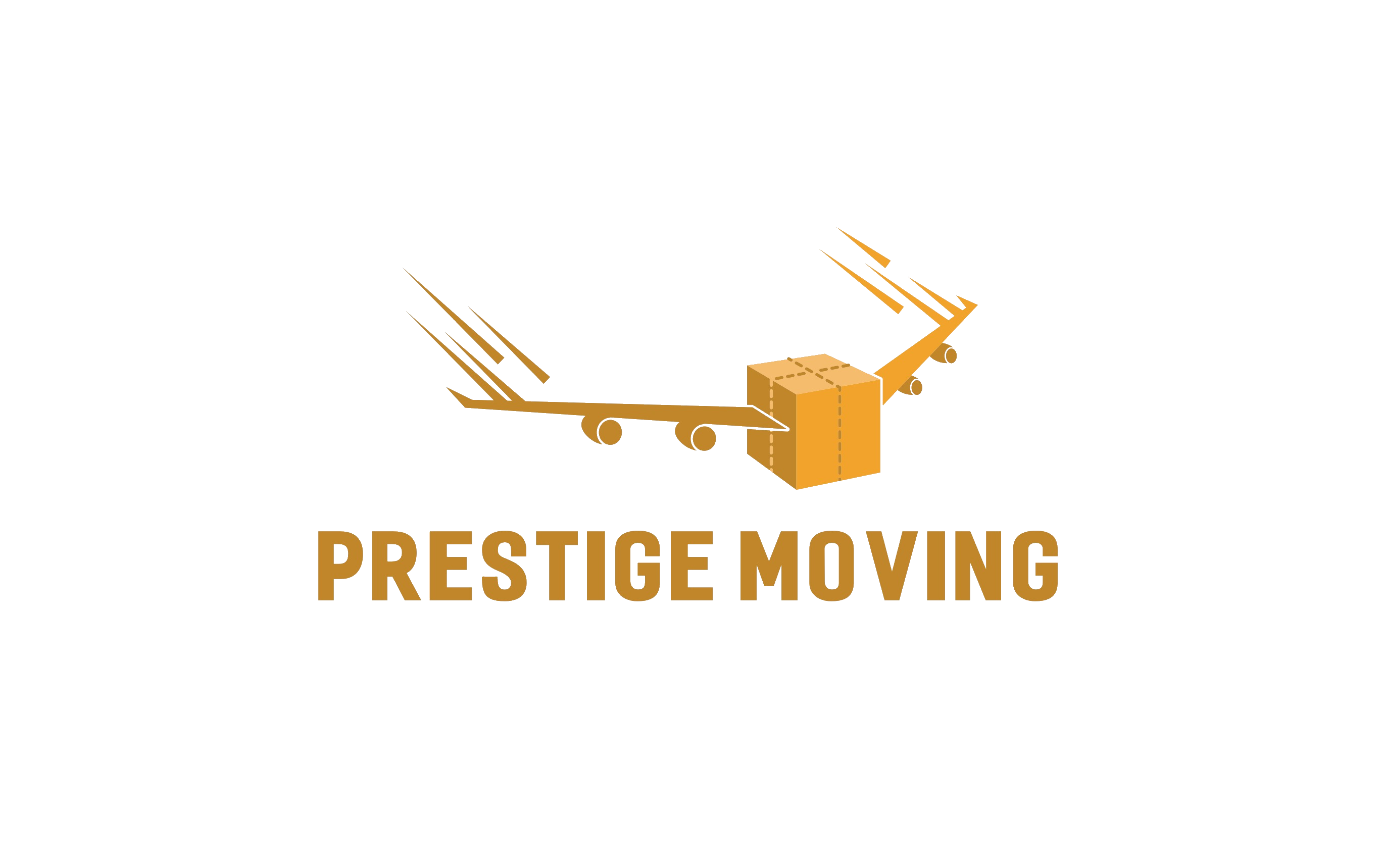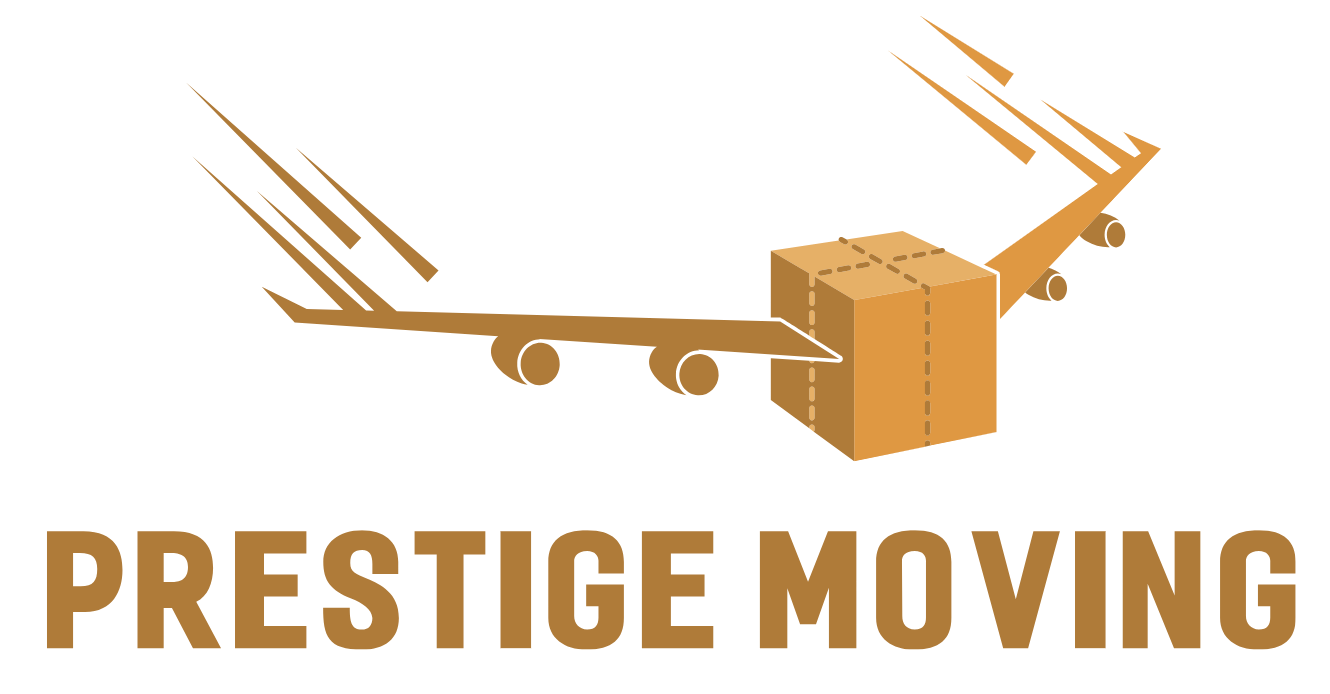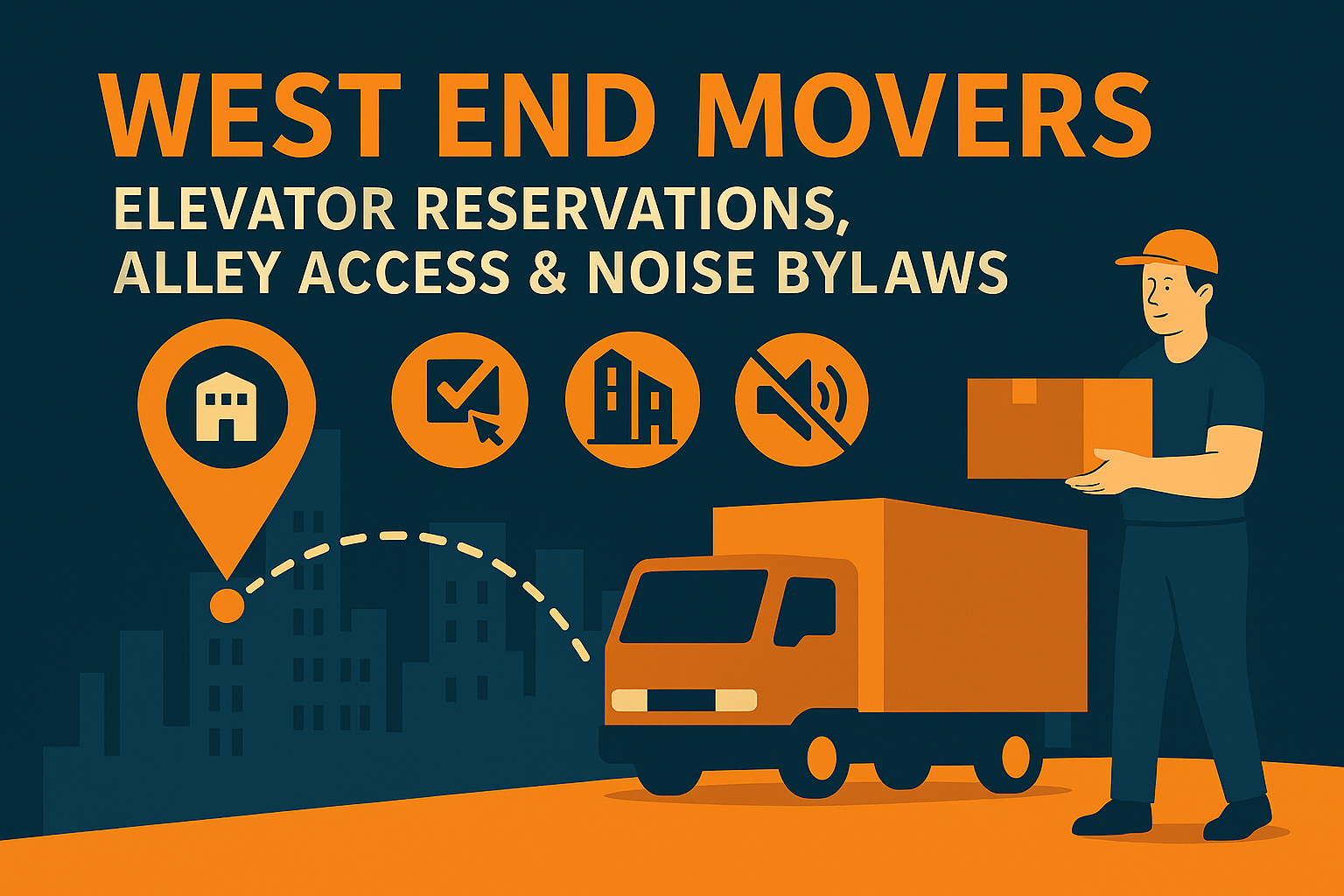Moving in Ottawa’s West End requires more than a strong team and a truck—it demands precision planning, building coordination, access management, and compliance with local noise bylaws. Condos, older apartment towers, narrow alleys, loading restrictions, and time-sensitive elevator bookings all shape the moving experience in neighbourhoods such as Westboro, The Glebe, Hintonburg, Centretown, and surrounding communities. This guide provides a complete, business-grade overview of the logistics, building protocols, and municipal regulations involved—and how professional movers streamline every step.
Understanding the Complexity of West End Moves
West End relocations involve condensed residential zones tightly integrated with commercial corridors. High-rise condos require elevator reservations, older homes have limited access points, and many laneways behind townhomes and triplexes are designed for small vehicles only. Coordinating timing, truck size, parking, and municipal bylaw compliance is essential to avoid delays, fines, or building penalties.
Professional movers experienced in West End neighbourhoods are already familiar with building forms, concierge requirements, freight elevator locations, and alley turning limitations. This is one reason many residents rely on reputable companies such as Prestige Moving, whose detailed planning approach is highlighted in resources like the Movers in Ottawa: Your Ultimate Guide to Stress-Free Relocation in 2025.
Elevator Reservations: A Critical Step in West End Moving Logistics
Why Elevator Bookings Matter
Most West End condos restrict elevator use during moves to ensure tenant safety and building protection. Skipping this step can result in denied access, delays, rescheduled moves, or hourly penalty fees.
Typical Building Requirements
- Mandatory reservation of the freight elevator
- Protective padding installation
- Move-in/move-out scheduling windows
- Damage deposit or insurance confirmation
- Confirmation of mover credentials
- Pre-approved truck parking location
Owners and tenants often arrange elevator bookings several weeks in advance, especially during peak periods like July 1 or month-end weekends.
This is especially relevant when relocating to high-rise or condo-heavy areas such as Centretown, as detailed in guides like Centretown Movers: Elevator Bookings & Loading Docks.
Best Practices for Efficient Elevator Use
- Assign one crew member to manage elevator doors
- Load in staged batches to maximize time slots
- Keep fragile items pre-wrapped to avoid packing on-site
- Use floor runners through hallways to comply with strata rules
Families relocating to custom homes or condos can also refer to move-in specialists such as Ottawa Residential Movers.
Alley Access: Navigating West End’s Tight Residential Corridors
Many neighbourhoods in the West End—particularly Westboro, Hintonburg, The Glebe, and Mechanicsville—feature narrow laneways built for compact vehicles, not moving trucks. Professional movers evaluate access routes during pre-move assessments to prevent blocked roads or damaged property.
Common Alley Challenges
- Tight corners and restricted turns
- Low-hanging utility lines
- Soft ground conditions in older alleys
- Vehicles parked slightly over property lines
- Inaccessible garage bays
- Limited reversing space
Movers frequently use smaller shuttle trucks when main access is too tight, a strategy highlighted in articles like Stairs, Long Carries & Shuttle Fees in Ottawa.
Best Practices for Alley-Based Moves
- Confirm laneway width using property maps
- Warn neighbours 24–48 hours before the move
- Use spotters when reversing
- Deploy wheel dollies to reduce long carries
- Schedule during daylight for maximum visibility
Professional movers specializing in tight-access homes—like Furniture Movers Ottawa—bring custom equipment such as compact dollies, shoulder straps, and walking boards.
Noise Bylaws: Complying with Ottawa Regulations
Moving often involves furniture disassembly, dollies, ramps, and truck engines—all of which can create noise. Ottawa’s Noise Bylaw (as published by the City of Ottawa, regulates when noise-producing activities can occur.
Ottawa Noise Bylaw Essentials
- Most moving activity must occur between 7:00 AM and 10:00 PM
- Early-morning loading may be restricted in certain zones
- Condo boards may enforce stricter internal limits
- Prohibited noises include excessive banging, dropped items, or long engine idling
Professional teams ensure compliance by using padded ramps, controlled lifting techniques, and quiet dollies.
For additional regulatory guidance, Canada’s noise and environmental standards can also be referenced via Government of Canada resources.

Parking Permits, Loading Zones & Municipal Requirements
West End streets often require temporary permits for moving trucks, particularly near:
- High-rise buildings
- Condo loading bays
- No-parking residential roads
- Bus lanes and commercial corridors
Ottawa’s parking restrictions and move-related permits are also covered in the moving-specific resource:
Parking Permits for Moving Trucks in Ottawa.
Temporary No-Parking Signs
For certain narrow streets, temporary no-parking signage may be needed to accommodate a full-size truck. These require advance notice and fees.
Loading Dock Management
Buildings with loading docks require:
- Scheduled entry windows
- Insurance certificates
- Crew identification
- Truck size compliance
Protecting Hallways, Floors & Building Interiors
Condo corporations enforce strict protection policies to avoid damage during moves. Professional movers use:
- Masonite floorboards
- Rubber mats
- Wall protection pads
- Elevator blankets
- Corner guards
This aligns with what’s outlined in How to Protect Your Furniture When Moving.
Seasonal Considerations in West End Moving
Winter Moves
Snow piles restrict alley access, and icy stairs require special precautions. Heavy-duty runners and salt-resistant mats protect building floors. Crews often perform pre-salting of access paths.
Summer Moves
High demand creates limited elevator booking windows, especially in July. Scheduling early prevents move delays.
Seasonal guidance is available in Winter Moving in Ottawa.
Specialty Items & Fragile Goods
Many West End homes contain antiques, pianos, and heritage furniture. Precision movers use specialized equipment and insured handling procedures.
Residents with fragile or specialty items benefit from:
Why West End Residents Prefer Professional Movers
1. Efficient Coordination With Condo Boards
Experienced movers manage booking forms, proof of insurance, and compliance documents.
2. Proper Equipment for Tight Spaces
Crews come equipped with low-profile dollies, compact toolkits, and stair climbers.
3. Fast Turnaround and Minimal Disruption
This is particularly valuable for seniors, who often use services such as Senior Moving Services in Ottawa.
4. Transparent Pricing and Predictable Timelines
Residents appreciate clear budgets, such as those outlined in Prestige Moving Pricing.
Pre-Move Checklist for West End Condos & Homes
Before the Move
- Book freight elevator 2–4 weeks in advance
- Notify neighbours of alley and lane access use
- Confirm parking permits
- Photograph hallways and floors (pre-move condition)
- Measure door frames and stairwells
During the Move
- Assign a contact person to coordinate with the movers
- Keep hallways clear
- Ensure pets and children are off-site for safety
After the Move
- Confirm all building pads and protections are removed
- Inspect elevator for damage
- Return keys and fobs
Detailed checklist guidance is available in Pre-Move Checklist Ottawa.
Choosing the Right West End Moving Company
Reputation and experience matter. Review:
- Insurance levels
- Crew experience
- Equipment inventory
- Customer testimonials
- Availability for condo-timed bookings
For residents seeking professional, reliable movers with strong West End expertise, contact the specialists directly through Prestige Moving’s Contact Page.
FAQs
1. How early should I reserve a freight elevator in Ottawa’s West End?
Most buildings recommend booking 2–4 weeks in advance; peak summer months require even earlier reservations.
2. Can moving trucks park in alleys behind West End homes?
Only if the laneway width and turning radius allow it; in many cases, a smaller shuttle truck is required.
3. What time can movers begin work under Ottawa noise bylaws?
Moves typically can begin at 7:00 AM, but some condo boards enforce stricter rules.
4. Do all condos require damage deposits for moves?
Many high-rises do, especially newer developments. Deposits are refunded after an inspection.
5. How do I know if I need a parking permit for my move?
Check building management guidelines or consult the City of Ottawa’s parking portal. Professional movers often handle this on your behalf.


